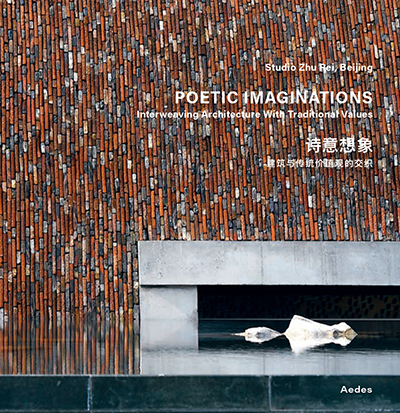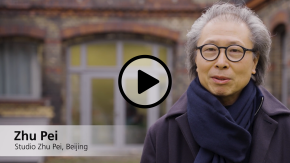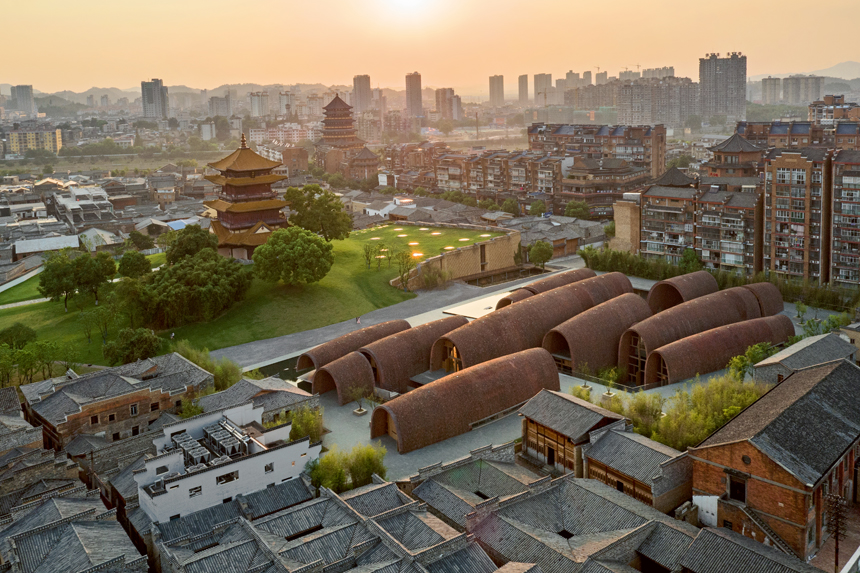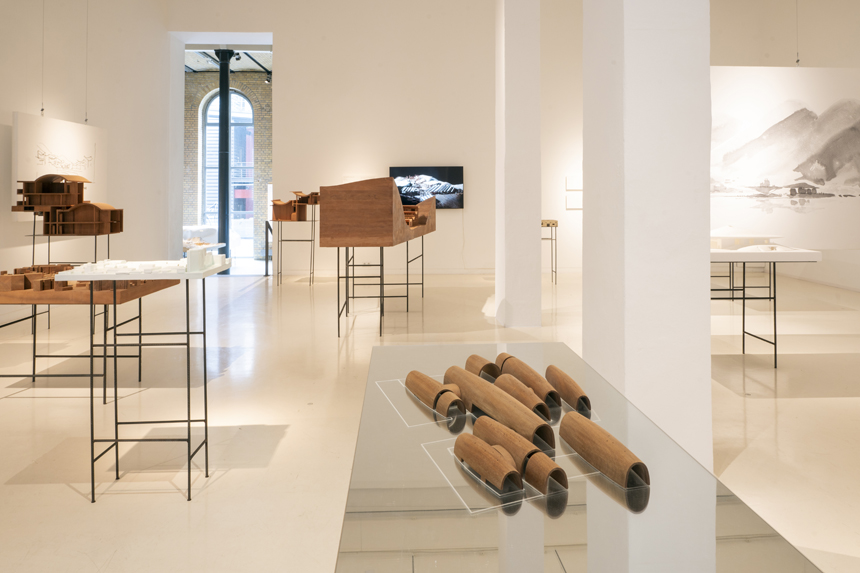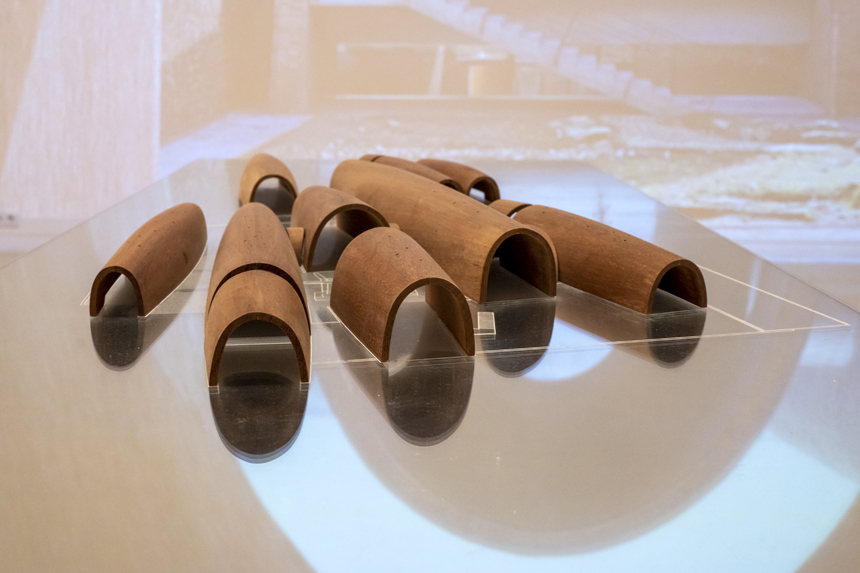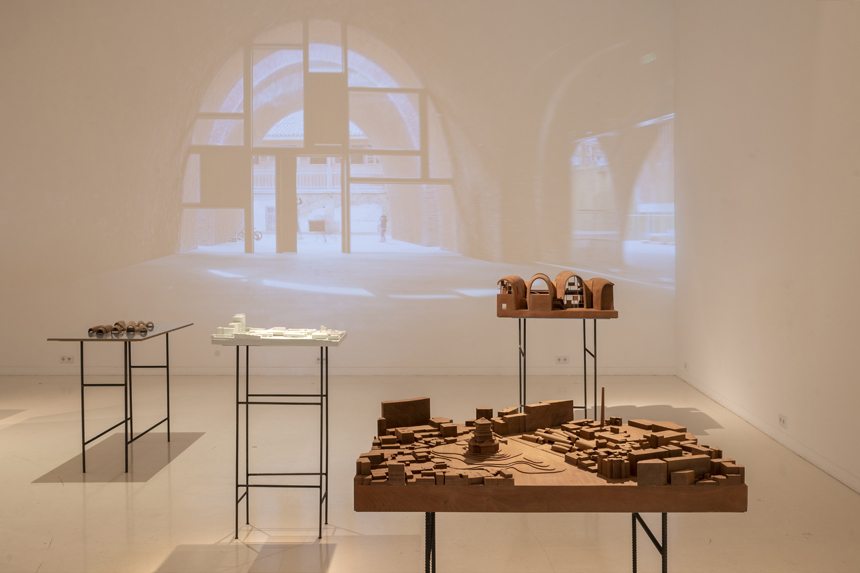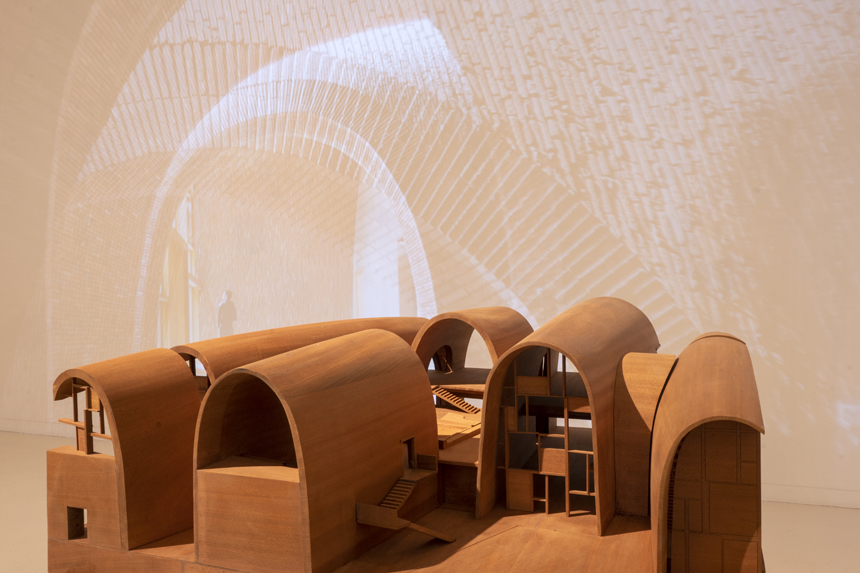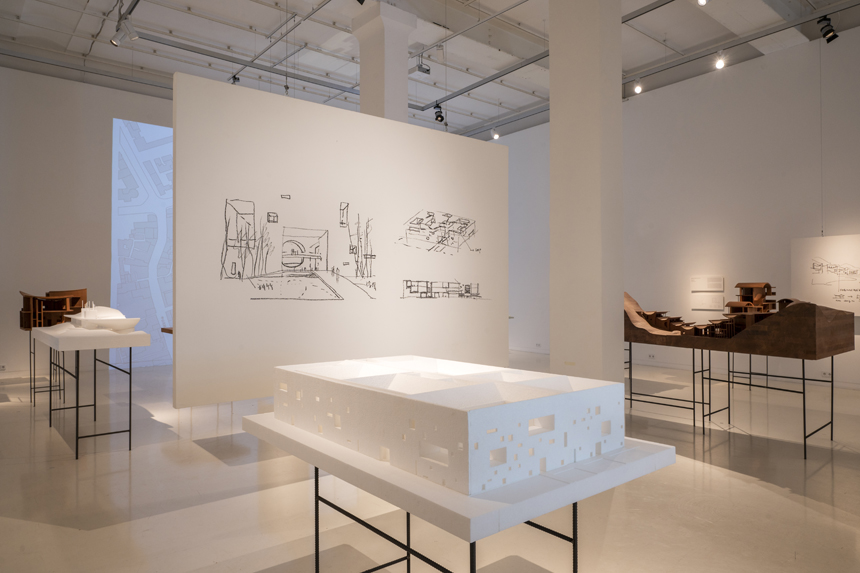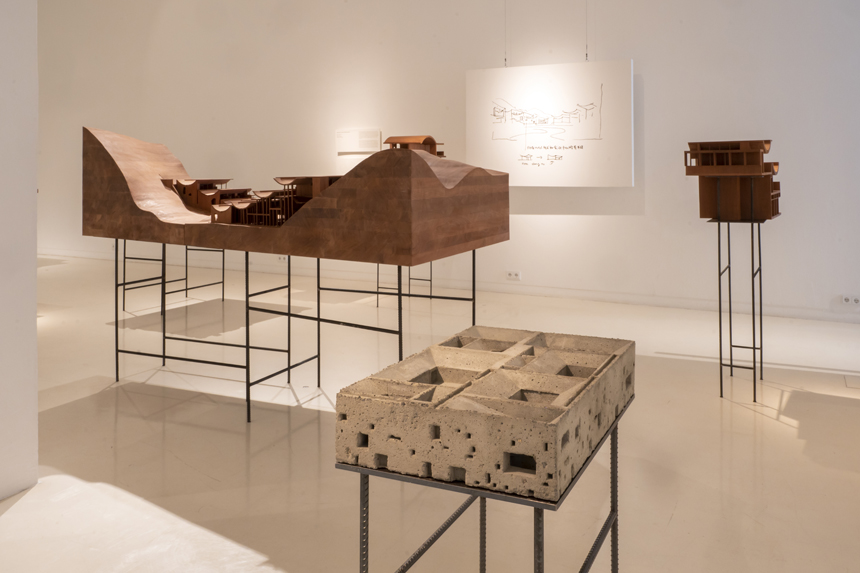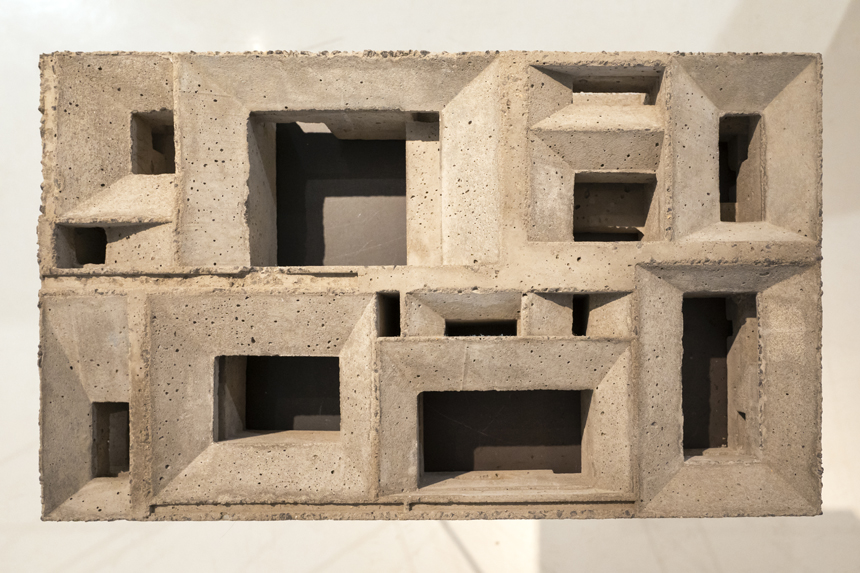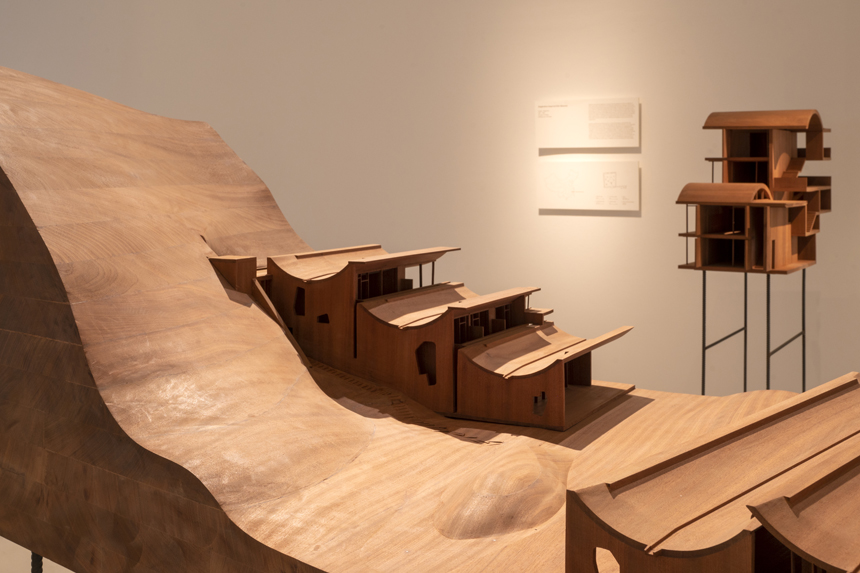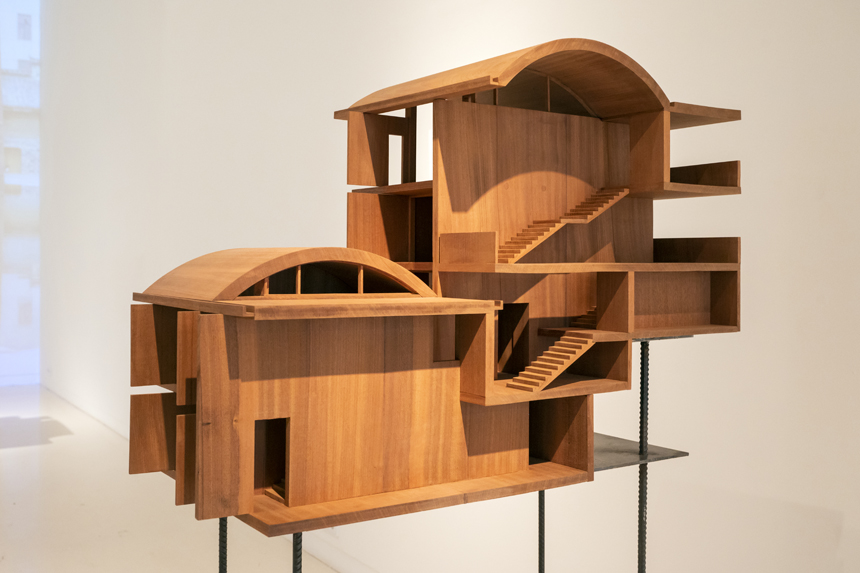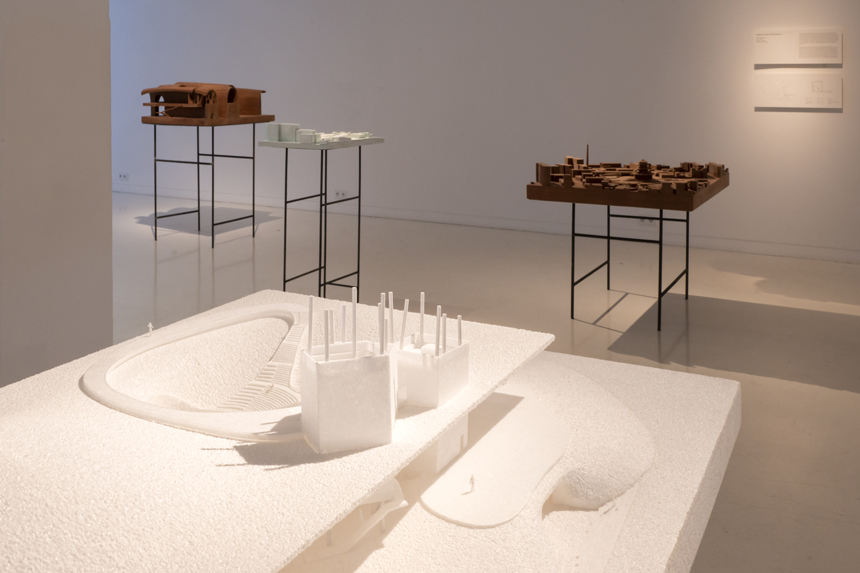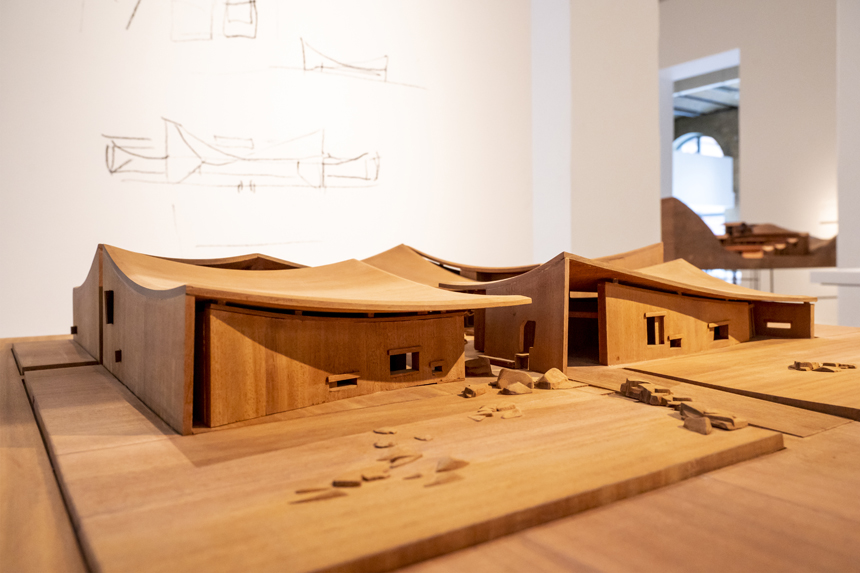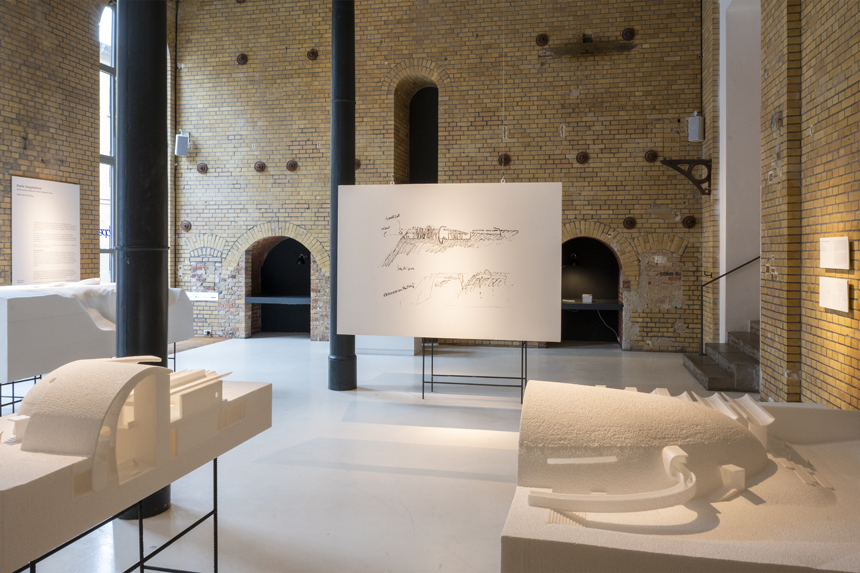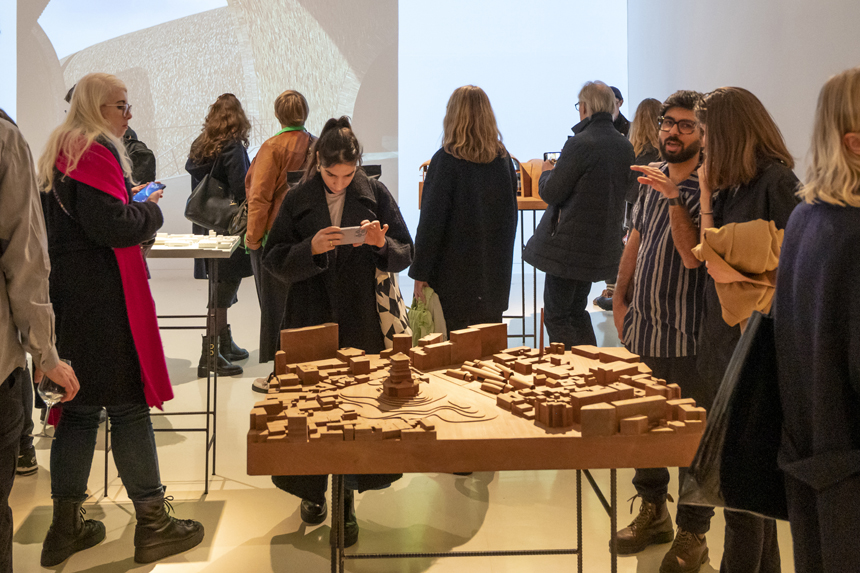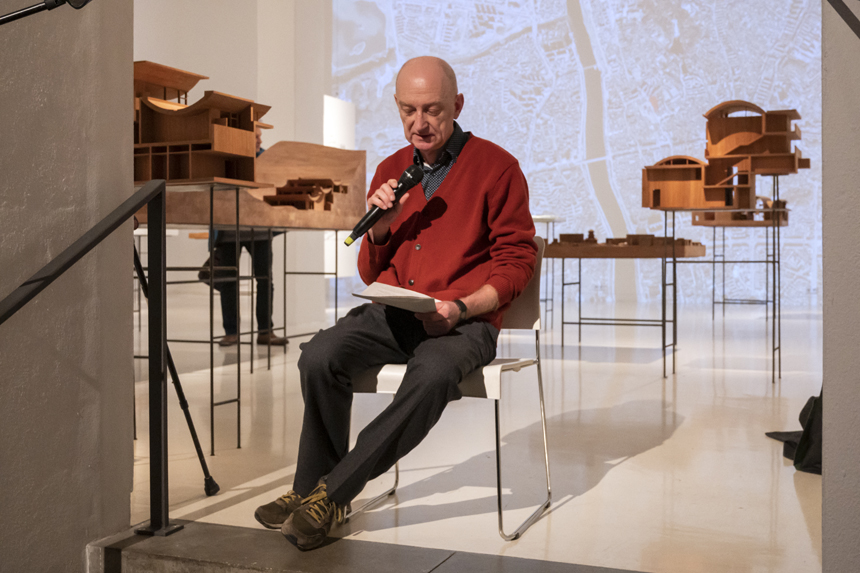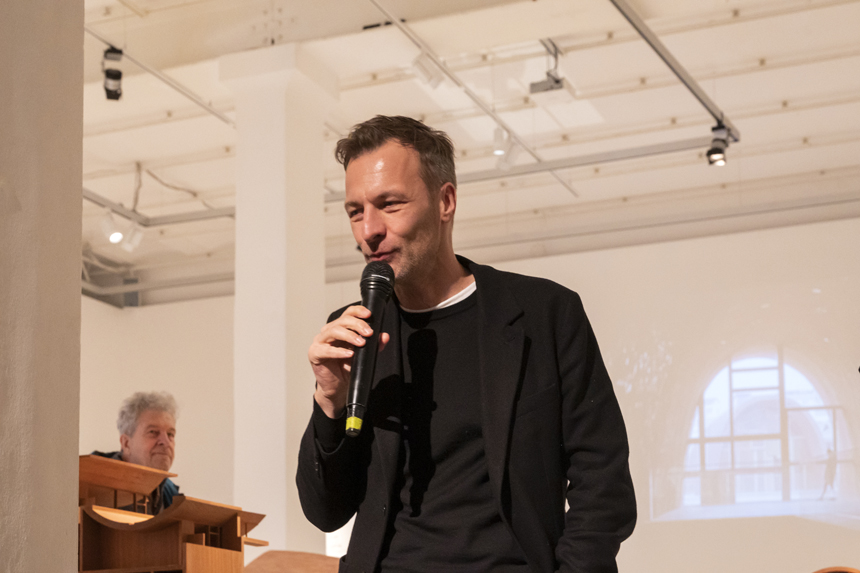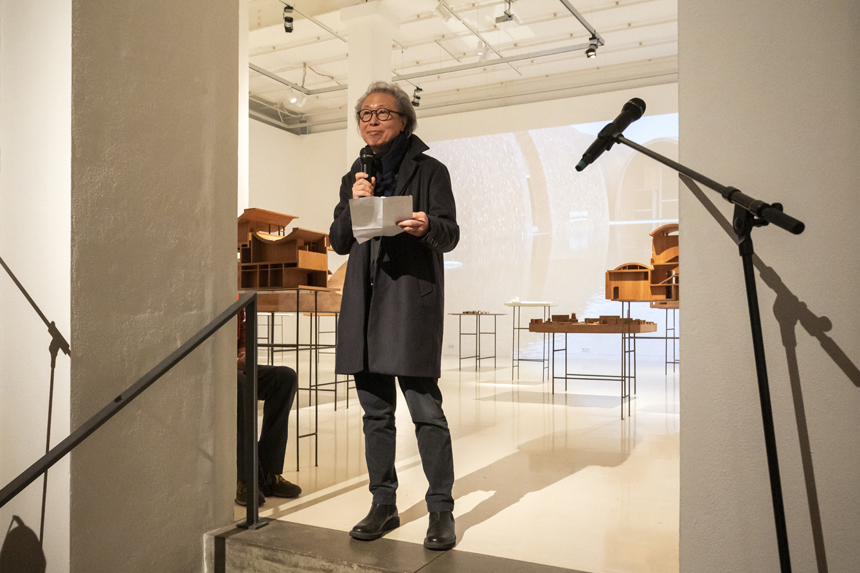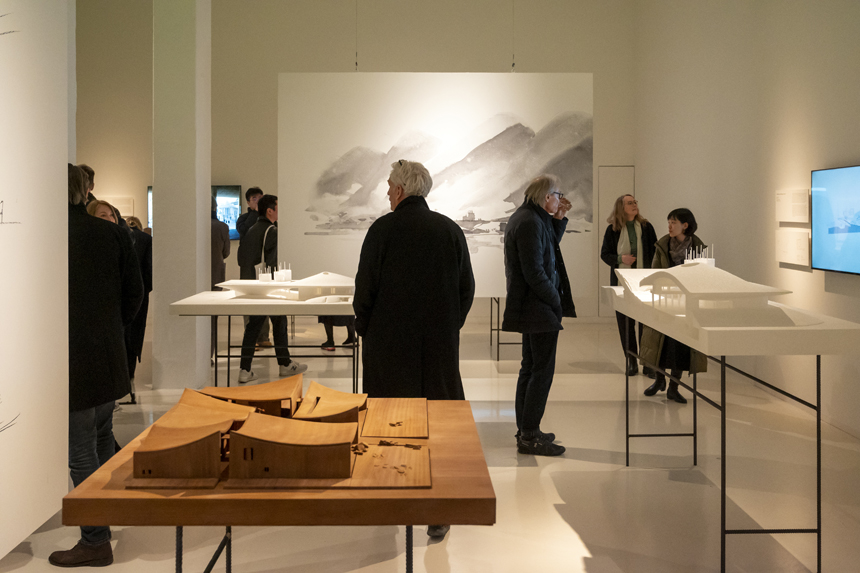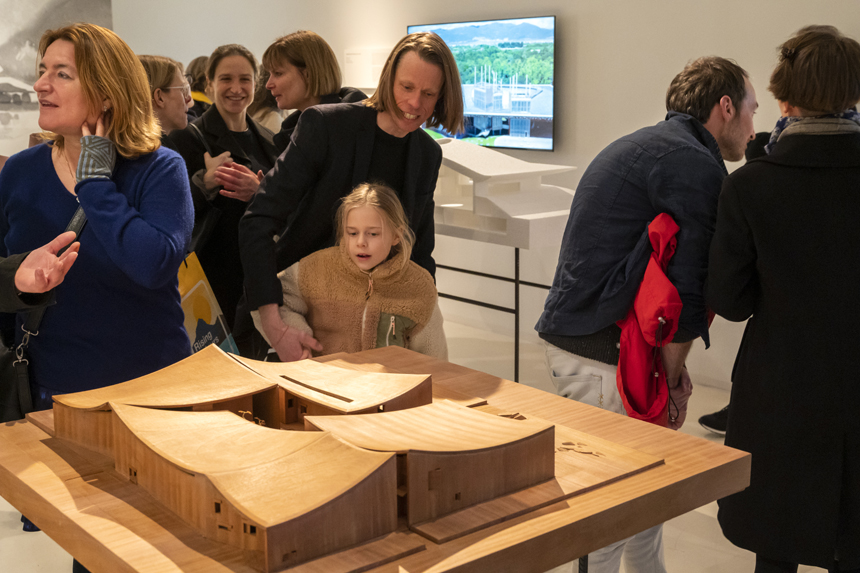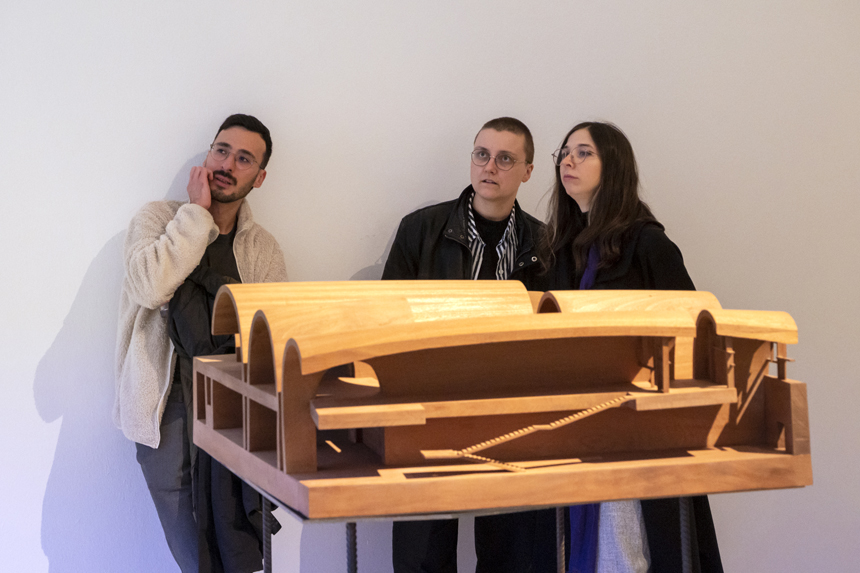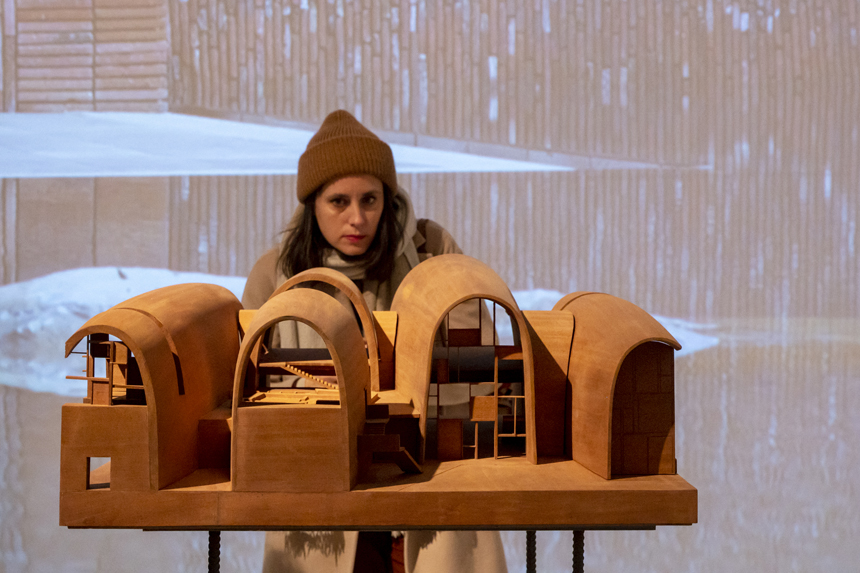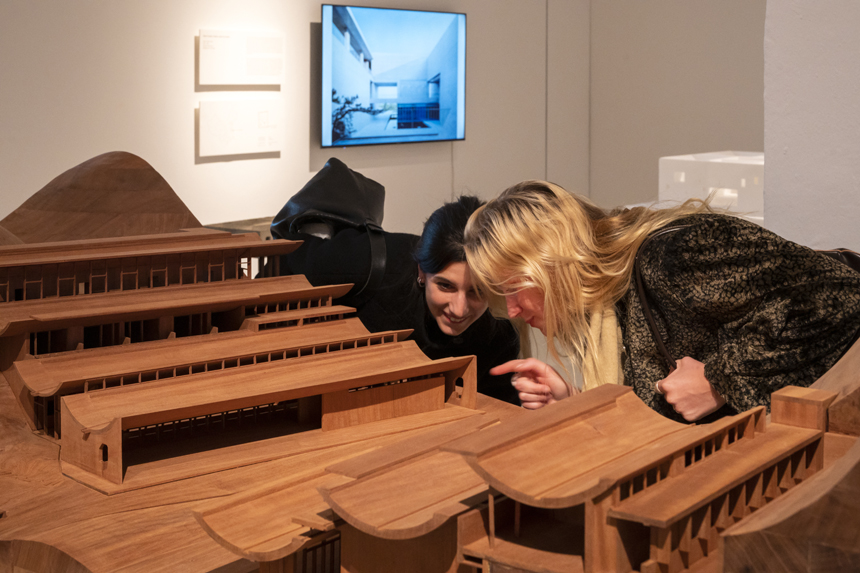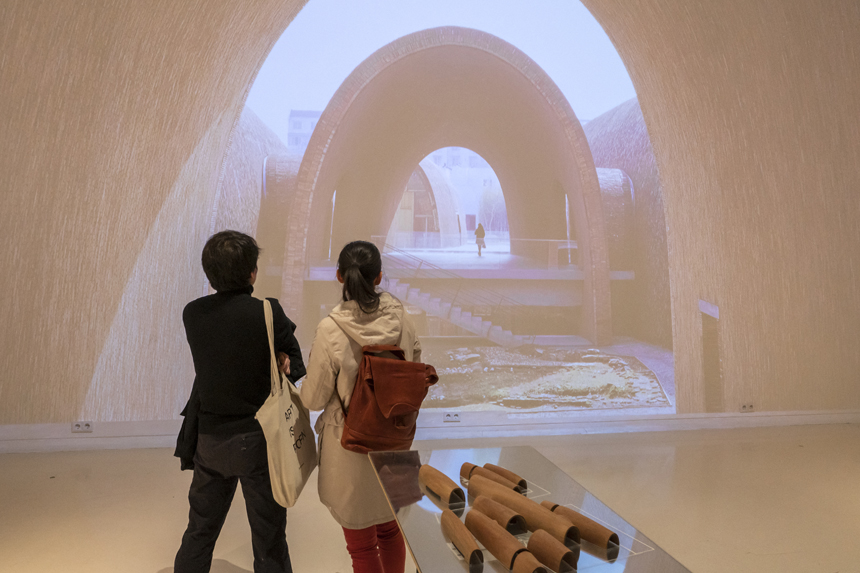The Beijing-based Studio Zhu Pei already presented its architectural approach with great success in an exhibition at Aedes in 2017, and the breath-taking pictures of the meanwhile completed Imperial Kiln Museum in Jingdezhen have been presented in the international media. Following the subsequent participation in the MoMA exhibition Reuse, Renew, Recycle in New York and in a large solo show in Wuhan, Poetic Imaginations at Aedes now stages a further chapter on Zhu Pei’s handling of the ‘collective historical experience’, topography, function and contemporary context of a location. The exhibition presents six representative cultural buildings that, despite their different functions and surroundings, are related to one another by characteristic structures, materials and architectural forms. Based on impressively crafted architectural models, sketches, documentary films and publications, the process of creating these examples is presented in greater depth.
While the built environment in China has undergone rapid transformation, Zhu Pei has reflected on historical-philosophical ideas of harmony between people and nature and weaving traditional architectural knowledge into contemporary spatial solutions. His conceptual considerations are based on elements from the tradition of Shan Shui painting, which is deeply rooted in Chinese culture. It is a particular form of landscape painting whose indispensable components are mountains and water. It shows and teaches a mode of perception that regards us as human beings not as an antithesis to, but instead as part of ‘nature’.
Zhu Pei’s designs generate an intrinsic connection between architecture and local culture, geography and nature. In his design guidelines, he takes recourse to traditional and regional building concepts that emphasize the relationship to the environment and simultaneously take into account contemporary requirements and cultural expectations.
Zhu Pei creates a contemporary aesthetic that makes poetic use of the ‘genius loci’. From large-format roofs to archaeological embeddings in cultural history, his projects give architecture a new artistic dimension. A hundred years after the gradual disappearance of historical theories and traditional architectural knowledge in China, Zhu Pei is defining new relationships and countering the banality of commercial urban expansion with a critical sensibility.

Imperial Kiln Museum, view from the amphitheatre to Ming porcelain ruins, Jingdezhen, Jiangxi, CN, 2020; Studio Zhu Pei | Shou County Culture and Art Centre, main entrance, Shou County, Anhui, CN, 2019; Studio Zhu Pei © schranimage
The Exhibition
The exhibition at Aedes presents six buildings by the Studio Zhu Pei from recent years. These projects – predominantly exhibition venues and cultural centres – are situated in a variety of natural surroundings and have a rich cultural background. Despite their different locations, they nonetheless bring together a characteristic structure and the use of particular materials, architectural forms and spatial configurations.
Projects:
- Jingdezhen Imperial Kiln Museum, Jingdezhen, Jiangxi, CN, 2020
- Majiayao Ruins Museum and Observatory, Lintao, Gansu, CN, 2018–
- Zijing International Conference Camp, Jingdezhen, Jiangxi, CN, 2022
- OCT Art Centre, Zibo, Shandong, CN, 2020
- Yangliping Performing Arts Centre, Dali, Yunnan, CN, 2020
- Shou County Art Centre, Shou County, Anhui, CN, 2019
Poetic Imaginations provides insights in the creative process by means of diverse mediums, including impressive architectural models, extensive sketches, documentary films and publications. The exhibition not only facilitates a new spatial and aesthetic experience for visitors, but also encourages them to contemplate the coexistence of human beings, nature and culture and how these elements interact with one another. Following Mind Landscapes in 2017, Poetic Imaginations is the second exhibition by the Studio Zhu Pei at the Aedes Architecture Forum.
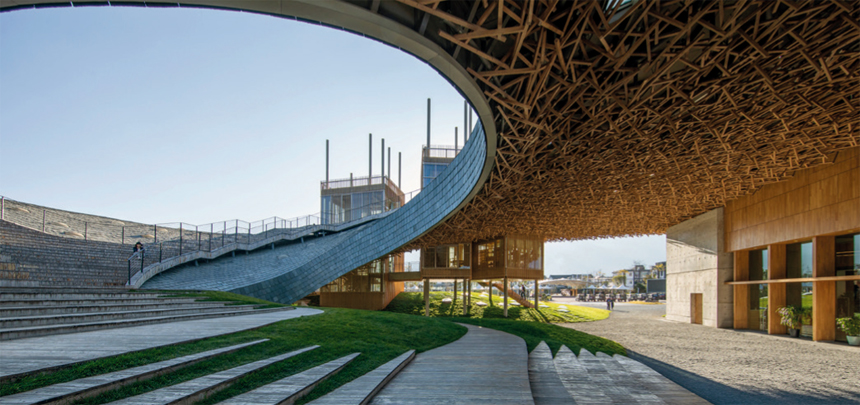
Yangliping Performing Arts Centre, outdoor theatre and outdoor performance space, Dali, Yunnan, CN, 2020; Studio Zhu Pei © Jin Weiqi
About Studio Zhu Pei
The Studio Zhu Pei, which was established in Beijing in 2005, dedicates itself to experimental work and research in the field of contemporary architecture, art and culture. Through its innovative approach, the team around Zhu Pei examines the deep connection between the roots of a work – embedded in a specific form of nature or culture – and innovative design on an ongoing basis. Parallel to Zhu Pei’s experimental practice and teaching activities, the studio has developed its own architectural theory: an ‘Architecture of nature’. This theory represents not only a poetics of building, but also a reaction to the challenges associated with global climate change and regional cultural upheaval. The projects shown in the exhibition Poetic Imaginations at Aedes were created on the basis of the theory developed by Zhu Pei and illustrate how the theoretical considerations were translated into architecture.
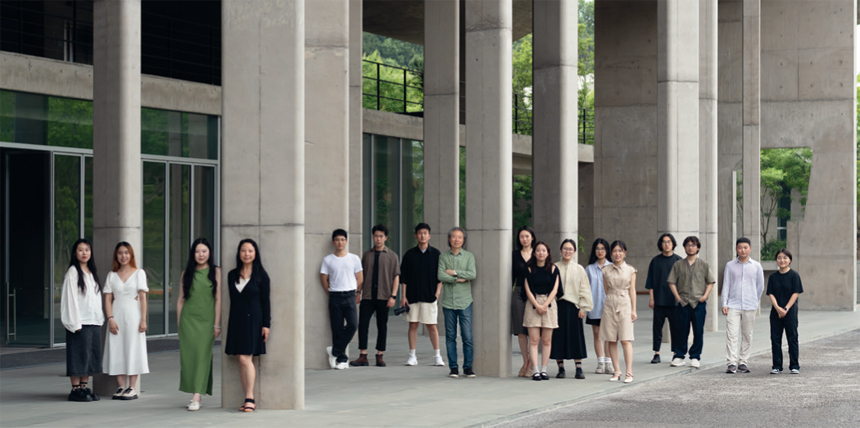
Team of Studio Zhu Pei © Studio Zhu Pei
Sponsors
China Construction First Group Corporation Limited, HuajiangConstruction CO., LTD, Shanghai Fengyuzhu Culture Technology Co., Ltd., Guangzhou Safe Expo Services Co., Ltd.
Aedes Catalogue
An Aedes catalogue will be published.
English/Chinese, 10€
> Order here
